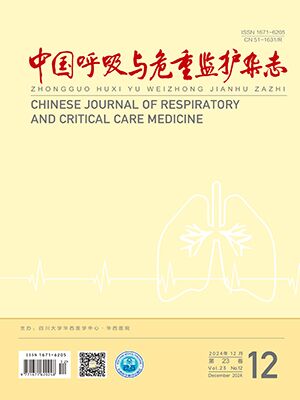Objective To investigate the clinical characteristics and treatment of severe H1N1 influenza during pregnancy and postpartum.Methods Clinical data of 7 pregnant women and 2 postpartum women with severe H1N1 influenza admitted from October to December 2009 were reviewed. Results Three pregnant women underwent caesarean section during hospitalization. The main symptoms included fever ( in9 cases, and fever lasted more than 3 days in 7 cases) , cough and sputum ( in 9 cases) , and dyspnea ( in 7 cases) . Asthenia and muscular soreness were not serious, and there were no accompanying symptoms of digestive tract. Moist rales were heard in 5 cases. White blood cell count decreased in 3 cases, neutrophils increased in 6 cases, and lymphocytes reduced in 7 cases. Hepatic enzymes were abnormal in 4 cases, and myocardial enzymes were abnormal in5 cases. 8 patients had hypoxemia, with PaO2 less than 40 mmHg in5 cases. Chest X-ray films and CT showed double pneumonia in 9 patients. 9 patients were given oseltamivir antiviral treatment. 8 cases were given antibiotic therapy. 5 patients with bilateral severe pneumonia and respiratory failure were given corticosteriod therapy. 5 severe patients were treated with non-invasive ventilation. One case switched to invasive ventilation and eventually died. Conclusions Pregnant and postpartum women with influenzaH1N1 are likely to develop into severe condition which is commonly rapidly
progressive and even life-threatening. The main causes of death are pneumonia and acute respiratory distress syndrome.
Citation: BAO Yongxia,WANGWei,WANG Jing,QU Bo,ZHAO Yonghua,HUANG Haiying. Clinical Analysis of Severe H1N1 Influenza in Pregnant and Postpartum Women .. Chinese Journal of Respiratory and Critical Care Medicine, 2010, 9(3): 234-238. doi: Copy
Copyright © the editorial department of Chinese Journal of Respiratory and Critical Care Medicine of West China Medical Publisher. All rights reserved




